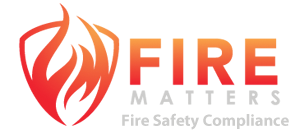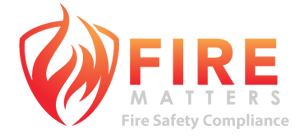Fire Service Contractors and Third-Party Software: Hidden Risks for the Responsible Entity
In recent years, fire service contractors have increasingly turned to third-party software systems to manage scheduling, site data, asset registers, inspection reports, and statutory compliance records. These platforms promise operational efficiency, streamlined workflows, and digital record-keeping—but they also introduce risks that are often overlooked by building owners, managers, and other Responsible Entities.
Because the Responsible Entity remains legally accountable for maintaining verifiable fire safety records that include the required information, any weaknesses in the digital systems used by their service provider can expose them to compliance failures, enforcement actions, or costly disputes. Understanding these risks is critical to ensuring the integrity and availability of essential fire safety documentation. Read more
How to compare Fire Safety Audit companies.
When it comes to fire safety, body corporates have a legal and moral responsibility to ensure their buildings comply with Queensland regulations. One of the most critical steps in maintaining compliance is engaging a fire safety audit company to assess risks and verify adherence to safety codes. However, not all audit providers offer the same …. Read More
Why Using Licensed Professionals for Fire Safety is Essential
Why you need to check licences
Hiring licensed professionals is not just about ticking boxes, if there’s an incident, being able to show that qualified professionals did the checks and maintenance can help legally, as body corporates can be held accountable if something goes wrong.
Why Using Licensed Professionals for Fire Safety is Essential
Why you need to check licences
Hiring licensed professionals is not just about ticking boxes, if there’s an incident, being able to show that qualified professionals did the checks and maintenance can help legally, as body corporates can be held accountable if something goes wrong.
Occupier Statement Explained
When it comes to managing properties in Queensland, one crucial thing to remember for fire safety is the annual occupier’s statement. This document might not seem like a big deal, but it’s really important. It keeps track of all the checks and assessments done on different fire safety systems in a building. In this article, we’ll talk about what the annual occupier’s statement is, why it’s needed, and why getting a third-party fire safety audit can be helpful.
Maintenance Tolerance Period Explained
The Qld Development Code MP6.1 calls up Australian Standard AS1851-2012 as the minimum service requirements for prescribed fire safety installation, therefor becomes mandatory. The frequencies are set out in the Australian Standard AS1851-2012; tolerances apply to the frequency service intervals set out for each required service. Tolerances are applied to the date of the initial activity, for example: Read more…
Third Party Certification – Why wouldn’t you do it?
Are your fire safety documents fully compliant?
When it comes to fire safety compliance, one often overlooked area is documentation. With service providers increasingly utilising third-party software to document their visits, body corporates may no longer have instant access to physical service logs. This leads to potential issues, such as discrepancies, data loss and unresolved issues that can compromise both safety and compliance.
Are your Fire Safety Documents fully compliant?
Are your fire safety documents fully compliant?
When it comes to fire safety compliance, one often overlooked area is documentation. With service providers increasingly utilising third-party software to document their visits, body corporates may no longer have instant access to physical service logs. This leads to potential issues, such as discrepancies, data loss and unresolved issues that can compromise both safety and compliance.
Who is liable for Fire Safety?
Who is liable for fire safety
There is a common misconception that if your building has a body corporate manager who schedules routine maintenance and maintains your documentation, they take on the liability associated with fire safety. However, this is not the case. If something is missed, the ultimate responsibility remains with the body corporate.
Understanding Fire Door Compliance: More Than Just a Door
Fire safety in multi-occupancy buildings is crucial, and an important yet often overlooked element is fire doors. Far more than a mere entryway, fire doors play a vital role in slowingthe spread of fire and smoke, protecting lives and providing safe evacuation routes.
However, improper installation, damage and neglected maintenance can render these doors ineffective, putting residents at increased risk.
Fire-Safety Systems: Are They Being Overlooked in Your Building?
Fire safety in multi-occupancy buildings is crucial, and an important yet often overlooked element is fire doors. Far more than a mere entryway, fire doors play a vital role in slowingthe spread of fire and smoke, protecting lives and providing safe evacuation routes.
However, improper installation, damage and neglected maintenance can render these doors ineffective, putting residents at increased risk.
Emergency Preparedness
.
What’s the difference between a building evacuation plan and a personal evacuation plan?
In the event of a fire, well-prepared evacuation plans can make a critical difference between life and death. There are two types of evacuation plans to consider:
- Building evacuation plans: broad strategies for safely exiting a building, and
- Personal evacuation plans: individualised plans tailored for those with specific needs.
Why using Licensed Professional for Fire Safety is essential
.
Why Using Licensed Professionals for Fire Safety is Essential
According to Section 54(1) of the Building Fire Safety Regulation 2008:
The occupier of a building must ensure that maintenance of each prescribed fire safety installation for the building is carried out by an appropriately qualified person.
This applies to all Class 3 Building Occupiers, Body Corporates, Building Owners and Strata Management Companies.
The importance of a comprehensive Fire Management Plan
.
Legislated fire safety requirements for residential buildings
In Queensland, most residential buildings lack a formal, comprehensive fire management plan (FMP). While commercial properties and high-risk facilities are required by law to have detailed fire safety strategies, the same is level of planning is not always mandated for residential buildings, even those housing multiple occupants. This gap in fire safety planning raises concerns about preparedness and resident safety.

